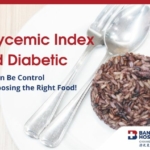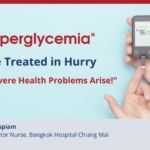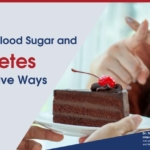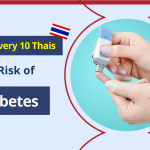
During Ramadan, or Muslim fasting month, which this year is from April 13 to May 12, Muslims need to abstain from all food, drink, water, and medicine from dawn to sunset.
Risks when Fasting in Ramadan
There may be a risk of hypoglycemia – low blood sugar caused by fasting. It may risk hyperglycemia - high blood sugar from eating large amounts of food after sunset or abstaining from diabetes medications. Also, it may cause acidosis - excessive acid in the body fluids, which can cause harm.
Therefore, you should be prepared before fasting and should know how to act during fasting. It is better to let the doctor diagnose you that you are healthy enough to fast or not, such as seeing your sugar control from last 3 months, no frequent low sugar, or no complications from severe diabetes. If you do not have these kinds of conditions, you will be allowed to fast.
Fasting in Ramadan, you can have only two meals which are before sunrise and after sunset. Therefore, it is necessary to share calories equally in both meals and have a snack once or twice the time if necessary.

Here are Suggestions!
- You should eat foods with a low sugar index and high fiber, also fresh fruits and vegetables. Drink enough water is crucial. Besides, you should avoid eating foods with high starch or fat and sweets. Also, avoid drinking caffeinated or sweet drinks.
- You should avoid excessive working out, especially a few hours after the sunset, since it can cause hypoglycemia.
- You should see a doctor for diabetes drug adjustment during fasting because some medications need to be reduced the dose and appropriately adjusted the eating time. It is the same as using insulin injections. The doctor will decrease the dosage and change the injection time. Therefore, it is crucial to consult your doctor.
- You should learn how to check blood sugar level by taking a finger stick test and check it regularly. When hypoglycemia occurs - below 70 mg/dl or more than 300 mg/dl, or illness, dehydration - the deficit of total body water, you should stop fasting immediately.
Consultation with the expert doctor click the Internal Medicine Clinic and fasting preparation will make the patient with diabetes fast safely and avoid hypoglycemia, high blood sugar, or acidosis.
sub-specialty Endocrinology and Metabolism
Bangkok Hospital Chiangmai










